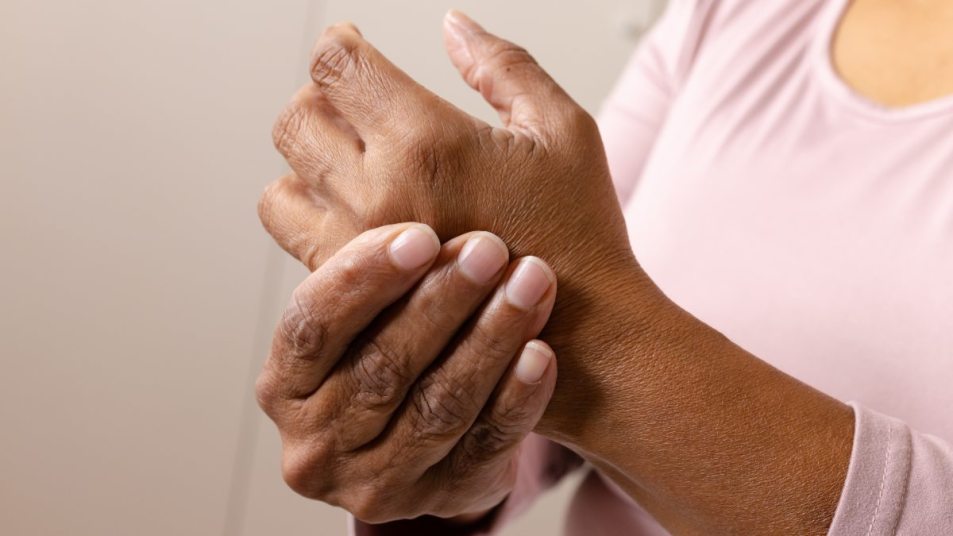Expert Advice: ‘My Hands and Feet Are Occasionally Tingly. What’s Causing It?’
The short answer: It's a little-known menopause symptom.

You’ve heard of the five most-talked about perimenopause and menopause symptoms: hot flashes, vaginal dryness, mood changes, a slower metabolism, and of course, hot flashes. Yet there are so many other symptoms of these transitional times that can sneak up on you, often because they aren’t well known. Here’s just one common condition that we don’t often discuss: tingling in the hands and feet. Yep — hormone fluctuations during perimenopause and menopause can spur that strange sensation. How do you treat it? Below, Dr. Barbara DePree shares several pieces of advice that are worth the read.
Meet our expert.
Barbara DePree, MD, is a gynecologist in private practice and director of Women’s Midlife Services at Michigan’s Holland Hospital. A Certified Menopause Practitioner, she is the founder of MiddlesexMD.com, an educational resource for women’s sexual health in perimenopause and beyond. To ask her a question, send an email to health@firstforwomen.com.
Should I be worried about this tingling?
Q: Besides bloat and gas, which I manage with antacids, I’m free of other perimenopausal symptoms, thankfully. But lately, my hands and feet are tingly and itchy. It only lasts a few minutes, but it’s troubling. What could be causing this?
A: Believe it or not, tingling in the extremities is a little-known menopausal symptom, and although bothersome, it’s usually benign. Since estrogen helps regulate central nervous system functioning, waning levels can trigger these sensations, which usually subside after menopause.
Another possible culprit common in perimenopausal women is low levels of B-12, an essential vitamin for optimal nervous system function and health. And since you rely on antacids to treat your gas and bloat, you may already have a shortfall. One study found evidence linking prolonged use (more than two years) of prescription and over-the-counter antacids to B-12 deficiency. The good news? When study participants discontinued usage, their B-12 levels rose again.
I suggest supplementing with one milliliter daily of liquid B-12, such as Global Healing B-12 Blend (Buy from Amazon, $19.95), which is the best-absorbed form of the vitamin. And instead of using antacids to treat your bloat and gas, try peppermint, ginger, or chamomile tea to relax the digestive system. Finally, if you’re not already doing so, consider adding exercise into your day. Regular exercise prompts your digestive system to release trapped gas and ease painful bloat. And daily activity also boosts blood flow and relieves stress, both of which can help alleviate the tingling sensations. However, if your symptoms persist longer than a few minutes or are accompanied by pain or visual disturbances, consult your doctor for further evaluation.
This content is not a substitute for professional medical advice or diagnosis. Always consult your physician before pursuing any treatment plan.
A version of this article originally appeared in our print magazine, First for Women.













